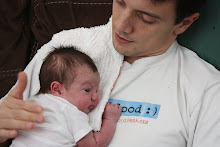-Ashley
My college roommate Michelle and I left San Diego today at 5:15am to head to the CBS studio in LA for the taping of The Price is Right! Michelle was heading to Anaheim for an Uppercase Living convention, and some of the ladies got group tickets for TPIR, so we jumped at the opportunity. After LOTS and LOTS of waiting in line (5 hours!), we finally made it to the front of the line to be interviewed by the show's producer. For those of you who have not had the privilege of attending a taping, this is how they choose the contestants for the day's gameshow. Michelle must have impressed the producer with her good looks, quick wit, and charm... they really seemed to love her!
Around noon, we finally got shuffled over to the waiting area for the studio. [Let me warn you, if you ever go to TPIR (which I highly recommend -- it was a lot of fun!), be sure to bring snacks! You are there for a very long time, and there is really no time to leave to get anything to eat. Needless to say, we were starving by around 10am without any options for food.] So, after relinquishing all electronics outside (I hoped to see my iPhone again), we made our way into the studio. A-maze-ing! It was incredible to walk into the studio and see the set of the TV show I had watched all these years. The studio is actually much smaller than you might expect -- not a bad seat in the house. It was very exciting!
After we got to our seats, we were given a brief overview of how the taping was going to work. Before we knew it, the bright lights came on, the "Applause" lights illuminated, and they started the show introductions with Drew Carey (Bob Barker's replacement). Wow - everything happened so quickly! The first step was to select the first four contestants. One by one, Rich Fields (he's the "Come on down" guy) read off their names, the assistants held up signs with the names (since we really couldn't hear much in the audience over all the clapping), and the contestants chosen ran down to their places.
Michelle was called as the second contestant!!! We were super excited, we stood up and cheered, and she ran down to the front of the studio. They filled the rest of the places, and then the show really started. During the bidding stage, Michelle kindly decided to let her competition take on the first two prizes (she was waiting for the really good stuff). I'm sure she didn't want the surfboard and snowboard package, or the set of crystal stemware. It was definitely time to act, however, when the chaise lounge shaped like a shoe was up for bid. She outbid all the other contestants (retail value was $1500!) and ran up on stage to play Bonus Game with Drew. Michelle did really well! She won 3 of the 4 smaller prizes (TPIR video game, toothbrush sanitizer -- everyone needs one!, and waterproof iPod speakers), and then won the bonus prize! You will have to watch The Price is Right on October 27th to see what bonus prize Michelle won (we're sworn to secrecy). Let's just say it starts with dune, ends with buggy, and might look something like this. I'm not sure where she's going to use that thing in Seattle, but it sure makes for a cool story! The only bad part - all winners have to pay taxes on their winnings. Michelle almost made it to the Showcase Showdown - she spun $1.05 (so close!) on the big wheel. The winner (a nursing student from Tennessee) ended up winning a Lexus SUV among other things.
 It was an exhausting day, but it was so much fun to cheer for Michelle and just be there to experience the show. I would love to go back - it really pays to go in a group (then you're pretty much guaranteed a spot) - so let me know if you're interested! It ended up being about a 12 hour trip for a one-hour show, but well worth it -- except for the ants in the rootbeer on the way home. Gross. Other than that, it was super fun!
It was an exhausting day, but it was so much fun to cheer for Michelle and just be there to experience the show. I would love to go back - it really pays to go in a group (then you're pretty much guaranteed a spot) - so let me know if you're interested! It ended up being about a 12 hour trip for a one-hour show, but well worth it -- except for the ants in the rootbeer on the way home. Gross. Other than that, it was super fun!Be sure to watch The Price is Right on CBS on October 27!
